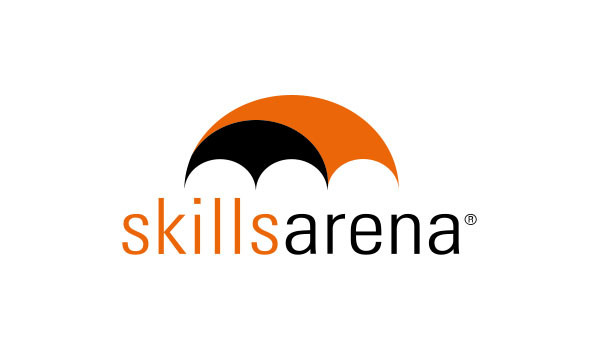The ability to proofread is an essential skill for those working within editorial and content based roles. Proofreaders check for any errors in writing, including grammatical, spelling, and formatting errors. With strong proofreaders in your team, you'll see the quality of your company's content skyrocket.
However, strong proofreading skills aren't just necessary for proofreaders, they're also useful for a wide range of roles that require a strong understanding of grammar and literacy. For employers looking to hire editors, content writers, and marketing executives, proofreading is an essential skill. This is why it's essential that hiring managers look out for proofreading specific skills and experiences during the recruitment process.
While proofreading tests can be incredibly helpful to quickly check a candidate's skills, employers also need to ensure the right questions are being asked during the interview phase. We understand it can be tricky to come up with job-specific interview questions to ask, especially questions for proofreading roles. That's why our team of experts here at Skillsarena have compiled a comprehensive list of interview questions that help access an applicant's proofreading skills. Whether you're hiring a freelance editor or full-time proofreader, here are some of the most essential interview questions to ask that will ensure you're making the best hires.
Question 1: How do you organise, plan, and prioritise your work?
This is a standard question asked during most job interviews because it helps hiring managers gain an insight into an applicant's style of working. Not only does the candidate's answer indicate their suitability for the role, it can also help to identify whether they'd be a good culture fit for your team.
Question 2: What is your process for identifying and correcting errors in spelling, grammar, and punctuation?
It's helpful for proofreaders to have a systematic way in which they correct any spelling, grammar, and punctuation errors. Having a clearly defined process is a good indicator that they are organised and are able to independently solve problems. How they approach correcting errors is also typically based on their knowledge of writing, editing, and proofreading so if the candidate has a strong approach, it's a good sign of their proficiency.
Question 3: What are some of the necessary skills a proofreader should have?
This question is another great way of testing a candidate's knowledge of the skills specific to and necessary for the role. In this case, applicants applying for a proofreading or editor role are expected to have strong communication skills and a good grasp on grammar. This interview question is also an excellent way to see how well a candidate understands the expectations and requirements for the job.
Question 4: Give an example of when you had to work with a difficult client
Difficult clients and situations are inevitable, and the way someone deals with these situations is a good indicator of how they behave when faced with problems. The ideal candidate will be able to approach any challenges in a calm and professional manner. They should also be able to include the steps they took to resolve the situation in their answer.
Having them answer this question with a real life situation is also helpful as it will give the candidate an opportunity to talk about their past experiences and how they are relevant to the role you're interviewing for.
Question 5: How well do you perform under pressure?
Every company has moments when deadlines are close, customers are hounding them, and they're forced to work under high pressure environments. Another widely-asked job interview question, this will help hiring managers evaluate how well the candidate works in stressful situations, especially when there are tight deadlines involved. This question is especially useful when interviewing for proofreading specific roles as proofreading and editing are the often last stage before publication and might need to be completed rapidly to meet key deadlines. In these cases, the candidate will need to be very focused and attentive to avoid common errors while working under time pressure.
Question 6: When proofreading, how do you determine which errors to tackle first?
There will be times when employees are faced with error-filled content, and when this happens you need to ensure your whole team is well equipped with the skills to tackle the problem efficiently and accurately. A good proofreader will have their own efficient and accurate system, supported by their technical knowledge in grammar, sentence structure, and general literacy.
Question 7: What proofreading style do you prefer to use?
There are a variety of different standardised proofreading styles used by professional proofreaders, such as Chicago style and AMA. If a candidate is able to answer this interview question with a specific proofreading style, it's a good sign that they've received the right level of training and will be able to perform highly in the role.
You'll also be able to see if they are a right fit for the company; if they're proficient in the same proofing style you use then they'll fit right in. If not, but they seem to be flexible and adaptable, they'll still be a great addition to your team after some training.
Question 8: What makes you an effective proofreader?
This interview question may seem quite direct and straightforward, but an applicant's answer to this can be very insightful. Not only does this question give them the chance to talk about their strengths, but it also lets them talk about their weaknesses and shortcomings in their answer as well. Essentially, this question is all about their self-awareness; if candidates provide a well-balanced and thoughtful answer, you can expect them to be better team members.
Question 9: Do you have experience working in digital content?
This question may initially seem too narrow or specific, but these days knowledge of the digital content space is essential for proofreading roles. Employees are now expected to proofread blog posts, website copy, and other types of digital content. There are unique challenges that occur when working specifically on digital mediums; how an applicant talks about their experience during the interview is a good indicator of how well they'll perform.
Asking about their digital experience is also very useful in seeing whether they have the necessary IT skills for the job. This is especially true if you use digital content management systems or are mainly writing, editing, and publishing work on digital platforms.
Final thoughts
Strong literacy skills are essential for virtually any role in the modern job market, and proofreading is an important part of this. By evaluating your applicant pool's writing and editing abilities, you'll be able to avoid bad hires and ensure your company is communicating efficiently and producing quality content at all times.
Whilst this list is by no means exhaustive, and you should amend these questions to suit your own organisation, they should provide you with some steer when hiring new talent in this area. If you're on the lookout for top performing content writers, copy editors, and proofreaders, we offer an excellent proofreading assessment tool. With the option to use our proofreading test as a practice quiz and training tool as well, our proofreading assessment can help you make more accurate hiring decisions.
Contact us today to book a free demo and we'll help you find the best solutions for your recruitment process.




